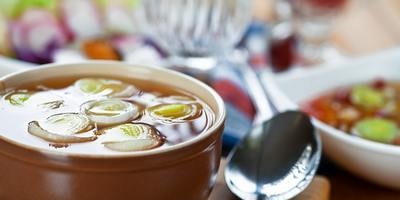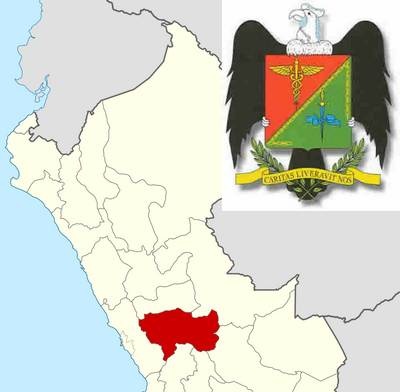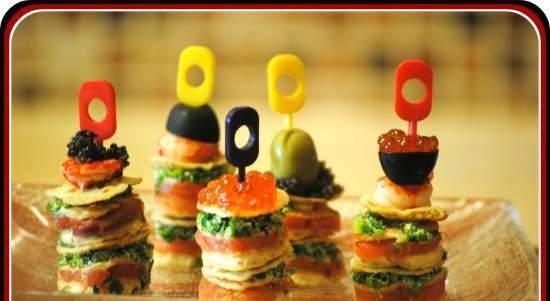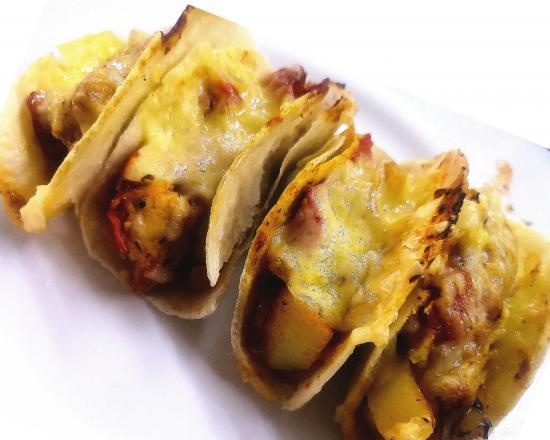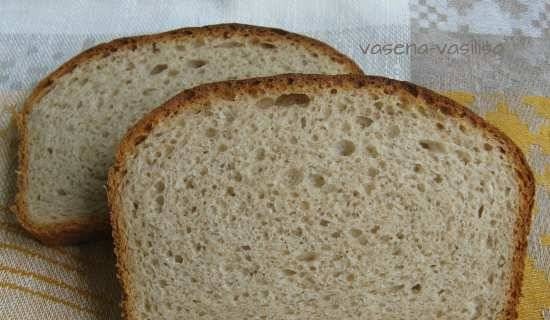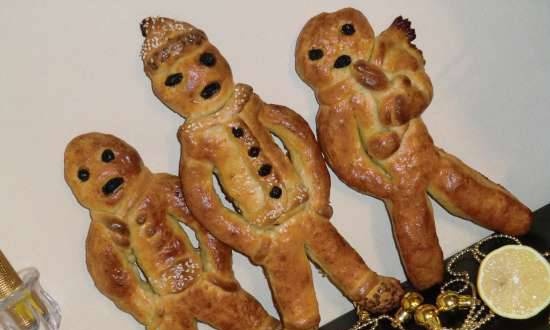|
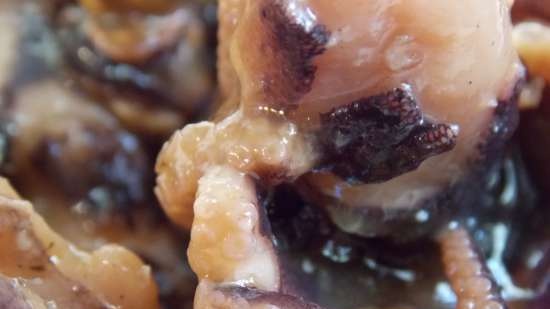 When Ivan Pavlovich Volokitin returns home after a long absence, it seems to him that it is very warm here. Even if it's winter outside. The family members complain that they are chilly, and Ivan Pavlovich is only surprised: When Ivan Pavlovich Volokitin returns home after a long absence, it seems to him that it is very warm here. Even if it's winter outside. The family members complain that they are chilly, and Ivan Pavlovich is only surprised:
- Is it cold? How cold is it?
Volokitin can rightfully consider himself a hardened person. He has already wintered twice at Mirny and Molodezhnaya stations, and more than once went to the shores of Antarctica on the Professor Zubov research vessel. However, his "immunity" to the cold, perhaps, is also explained by the fact that in the chilly Antarctic latitudes he still had a "warm place": in the galley, by the stove.
In distant expeditions, the cook is not the last figure. This is evidenced, in particular, on the basis of personal experience, the writer Vladimir Sanin, who wrote the book "Newcomer in Antarctica", in which almost every page is illuminated with a cheerful smile. He writes: "Polar explorers are great food lovers: deprived of a home table, they are picky about the cook and are not inclined to forgive him for lack of qualifications (" if you don't know how, don't go on an expedition! ").
This is not said without humor, but at the same time and seriously.
Ivan Pavlovich passed a serious exam, which was taken by the most strict and picky eaters - polar winterers. Try not to please them - they will not only condemn the inept cook, but also harass him with their jokes! And on the tongue they are sharp. Humor helps them to endure the difficulties of many months of wintering.
How do they become cooks on polar expeditions? We know that for this it is necessary to graduate from a special vocational school. Volokitin got to Antarctica in a different way. While still undergoing military service in the navy, he was among those who, at the suggestion of the command, were sent to study for a cook. Six months later, a group of cooks graduated from the training galley. The young sailor Volokitin became a cook. Never mind that in the past he was a carpenter-formworker. This did not prevent him from successfully mastering the art of cooking. After demobilization, having arrived in Leningrad, Volokitin returned to his former profession, worked in the SMU of the Office of Consumer Services. And after a while, as one of the best construction workers, he was enrolled in the 10th (anniversary) Antarctic expedition.
You go as a carpenter - that's what the personnel department initially decided. But when it became known that the carpenter was also a cook, he was assigned another job: Volokitin became a cook at Mirny station. In this role, he was more needed there.
Once upon a time, polar winterers used primus for cooking. This, in particular, was the case with the famous four of the Papanins who drifted on an ice floe in the Arctic. Today, Arctic and Antarctic chefs have at their disposal electric stoves and electric boilers. Like the best restaurants.
However, a pole is a pole. It has its own specifics. When, for example, sled trains going deep into the ice continent are equipped, broth, porridge, everything that the participants in the hike take with them is pre-frozen for ease of transportation. The broth, made into pieces of ice, is put into bags. On the way, when necessary, they will put it in a saucepan, put it on the tile, and it will again become fragrant, tasty chicken broth.
But on the spot, at the base, they cook according to all culinary rules. In the winterers menu - kharcho and chanakhs, entrecotes and chicken-tobacco... Polar explorers enjoy both cakes and ice cream, which is popular, even when it is 50 degrees below zero outside.
Having passed the unusual school of the Antarctic chef, Volokitin transferred to the research vessel "Professor Zubov". Here he is already a senior chef. He has six other chefs under him.Depending on where the ship is located, in the tropics or in the polar latitudes, the demands of the table change, and therefore the menu also changes.
If in Antarctica there is more demand for hot dishes, then in the tropics, naturally, for cold dishes - okroshka, borscht... A lot is used in tropical latitudes of all kinds of greenery, radish saladsmade from cucumbers. Of no small importance is what to drink in high heat. On this account, a special drinking regime has been developed. The team is allowed to issue diluted dry wine - 200 grams per liter of water. Fruit and berry juices are issued at the rate of 300 grams per person per day. But the best thing is delicious Russian kvass. There is no surer way to quench your thirst than this drink!
Quite often the navigator of the watch announces on the ship radio:
- The pitching is getting stronger ... Fix everything in the galley.
Waves rise. The ocean tosses and turns like a huge living creature. The ship sways, and everything on it also starts to move. Boilers sway on the stove, and soups and compotes are splashing in them. But with ship cooks, everything that can fall, topple over, spill out, break, is fixed in advance or, as the sailors say, is caught. So that the plates do not slide off the tables, wet tablecloths and sheets are placed under them.
It is especially difficult to bake bread when rolling. The form trembles, the dough settles from this. She has to be held in her hands carefully, like a child.
Several years ago "Professor Zubov" had to take part in a rescue expedition. The diesel-electric ship "Ob" turned out to be compressed by the powerful Antarctic ice. Rescuers worked selflessly. The cooks also worked around the clock, preparing tea and sandwiches for the rescue teams even at night.
Among those awarded with orders and medals for participating in the rescue of the Ob and the selflessness shown in this was also the senior chef of the research vessel Professor Zubov, IP Volokitin. He was awarded a medal "For Labor Merit".
When the multi-day struggle to save the diesel-electric ship ended, when all the difficulties were left behind and the ship was returning to its native shores, only then the members of the expedition allowed themselves a rest. Fans of fishing threw the line from the board into the ocean. We caught fish octopus, sharks. Some of the inhabitants of the ocean turned out to be so gluttonous that they were caught even on pieces of foam rubber. The booty was sent directly to the galley. The "red-tape squid" enjoyed particular success. They were fried in a pan with onions like mushrooms and served with mayonnaise.
Ivan Pavlovich has a passion. He is an athlete, an avid football player. The already mentioned book "Newbie in Antarctica" describes a football match that took place on the island of Waterloo. The weather that day was great for Antarctica, summer - 15 degrees below zero. A dozen penguins, great lovers of all kinds of spectacles, crept into the crowd of fans that surrounded the site where the game took place. There are also lines in this description directly dedicated to Ivan Pavlovich, who also took part in the match. He was the first to hit the goal accurately. True, the goal was not counted, because by mistake, in the excitement of the game, Ivan Volokitin, “having broken through the center, with a rare beauty kick drove a gawker-penguin into the goal net”.
However, in all other matches Volokitin, the organizer of the mass sports work on the ship, played, as eyewitnesses testify, with great success.
In 1974, the ship "Professor Zubov" set off for another voyage, but not to Antarctica, but to the tropics. This voyage, which involved forty ships flying the flags of more than ten countries, was named Tropax-174. Its participants studied the processes affecting the weather in the tropical latitudes of the Atlantic Ocean.
Senior chef Ivan Pavlovich Volokitin was again at his post, in the galley. He cooked dinners in the vast Atlantic as confidently as at the South Pole.
Medvedev N.M. Country Culinary
|
